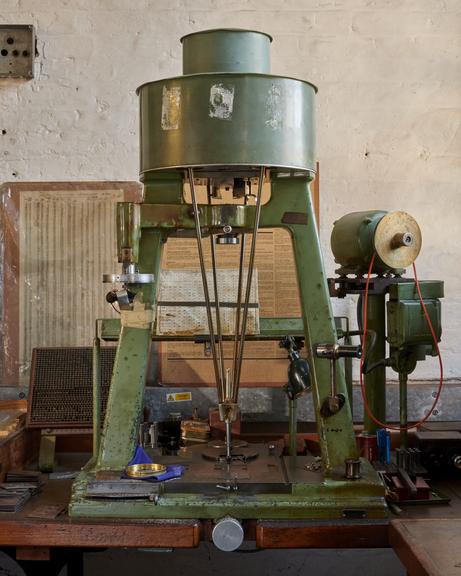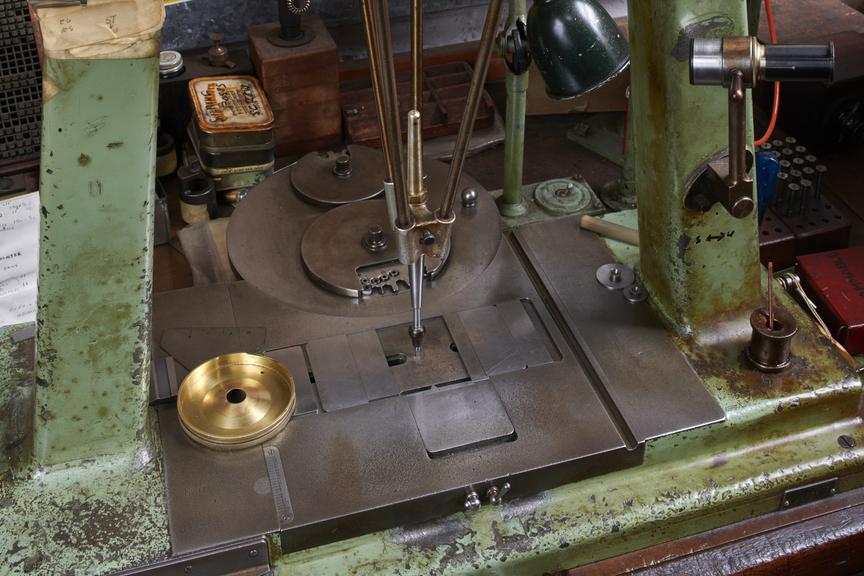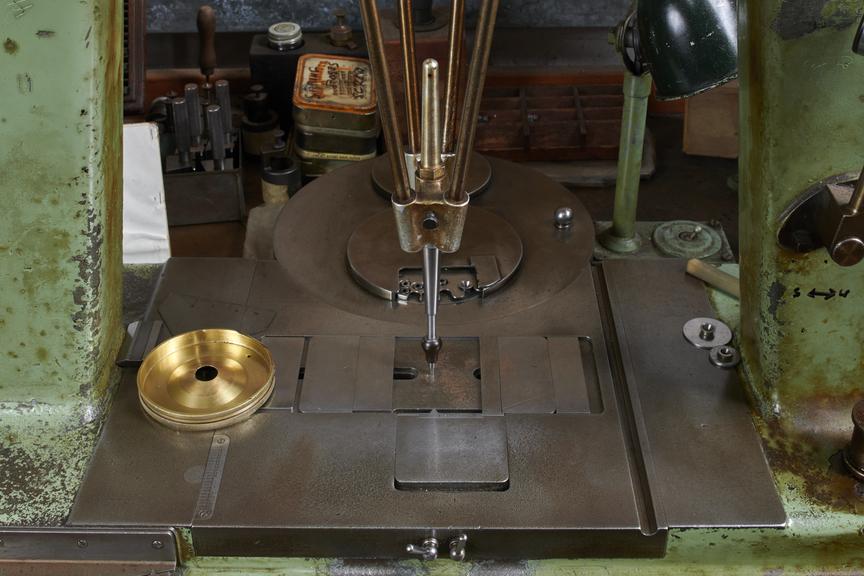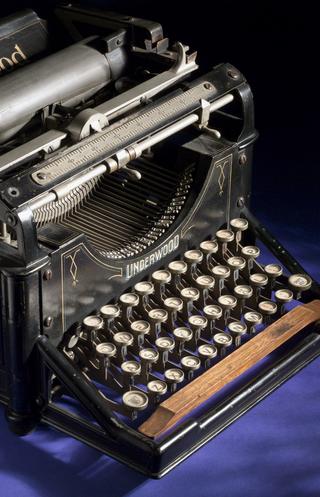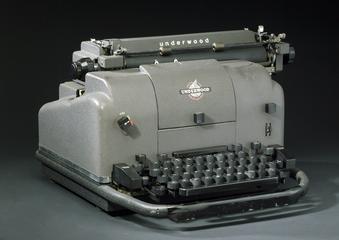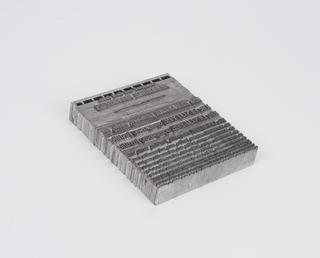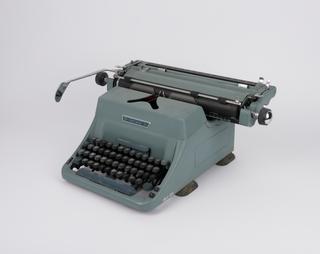Monotype Pierpont Punch-Cutting Machine
Pierpont punch-cutting machine, Plant No.1837, made by The Monotype Corporation Limited, Salfords, Redhill, Surrey, England, 1951. Fitted with pendulum pattern follower, 0.2 x 0.2 inch and 0.4 x 0.4 inch punch holders and a full set of tools and jigs. Part of the equipment used in the production system for Monotype matrices. Mounted on bench.
More
In 1885 Linn Boyd Benton of Milwaukee invented a mechanical punch-cutting device where copper patterns were traced with a vertical pantograph in order to make a punch. The lower end of the pantograph is operated to follow the outline of the copper pattern, while the upper end works a small tool, moving at many revolutions per second. The process is a gradual one, in which the material at the end of the steel body of the punch is cut away until a scaled-down version of the character on the pattern (a letter, number, sign or logo) is completed. The machine works to the accuracy of 0.025in (0.0635cm) and produces punches from 4 to 72 point in size.
The realisation of mechanical typesetting would have been held back without Benton’s innovation. The first punch-cutting machine was delivered by Benton, Waldo & Co. to the Lanston Monotype Machine Company in Washington, DC, USA in 1890. Ten years later, around £50,000 was spent on equipment for the new factory at Salfords in Surrey, UK, including numerous Benton-Waldo punch-cutting machines for making matrices for metal type.
The machine was later modified and improved upon by Frank H. Pierpont of The Monotype Corporation Ltd. and became known as the Pierpont punch-cutting machine. Pierpont (c.1860–1937) was the manager at “The Works”, the Monotype factory at Salfords, between 1899 and 1936. In 1907, punch-cutting machines, designed by Pierpont and made in the Salfords factory, were installed in addition to the Benton-Waldo equivalents. They made eight times more punches in a given time than the earlier machines. They also worked to much finer tolerances with less-skilled labour.
This machine and the other Pierpont punch-cutter in the collection (SMG object number: 1995-1578) are the only two of their kind in the world.
- Measurements:
-
overall: 1130 mm x 700 mm x 400 mm,
- Materials:
- steel (metal) , bakelite , copper (metal) , brass (copper, zinc alloy) and aluminium alloy
- Object Number:
- 1995-1597/1
- type:
- machines



